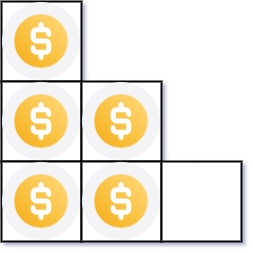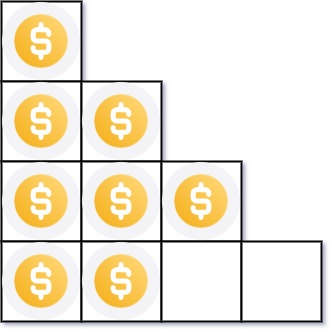
Coding Challenge - 3:
Problem Statement: Arranging Coins
You have n coins and you want to build a staircase with these coins. The staircase consists of k rows where the ith row has exactly i coins. The last row of the staircase may be incomplete.
Given the integer n, return the number of complete rows of the staircase you will build.
Example 1:

Input: n = 5
Output: 2
Explanation: Because the 3rd row is incomplete, we return 2.
Example 2:

Input: n = 8
Output: 3
Explanation: Because the 4th row is incomplete, we return 3.
Constraints:
1 <= n <= 2^31 - 1
.
.
.
.
.
Try it Yourself (Hint: Do You Know Binary Search)
.
....If not ,refer to :Binary Search
.
.
.
.
.
Fun Fact: The problem of arranging coins to form a staircase is linked to triangular numbers and even has a playful nickname—the "Pyramid Scheme" of coins.
.
.
.
Solution:
// using cpp
#include <iostream>
using namespace std;
int arrangeCoins(int n) {
long long left = 0, right = n, mid, curr;
while (left <= right) {
mid = (right + left) / 2;
curr = mid * (mid + 1) / 2;
if (curr == n)
return mid;
if (curr < n) {
left = mid + 1;
}
else {
right = mid - 1;
}
}
return right;
}
int main() {
int n;
cout << "Enter the number of coins: ";
cin >> n;
cout << "Number of complete rows: " << arrangeCoins(n) << endl;
return 0;
}
Explanation:
-
Binary Search: The code uses a binary search approach to efficiently find the maximum number of complete rows.
-
Mid Calculation: For each mid value, it calculates the sum of the first mid natural numbers.
-
Comparison: It compares this sum to n to adjust the search range until the correct number of rows is found.
10 Reactions
2 Bookmarks
